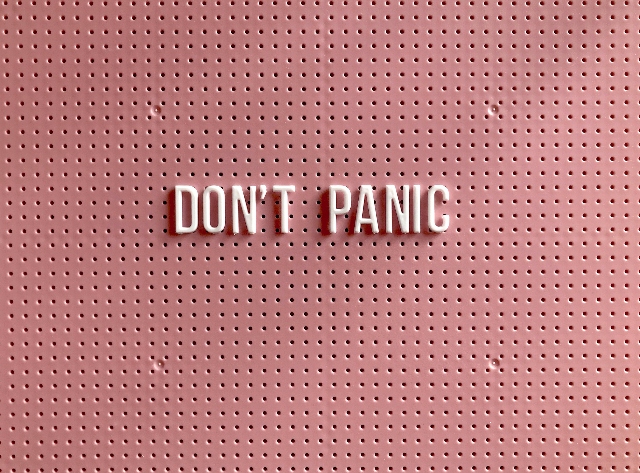
Body + Mind is reader-supported. We may earn an affiliate commission when you buy through some of the links on our site.
Are your arms heavy, knees weak, and palms sweaty? With apologies to Eminem, yes, anxiety can produce unpleasant physical symptoms.
How can you stop feeling sick from anxiety? The following techniques can help you find calm in a sea of emotions.
When you feel stressed or anxious, your body opens the dams and releases a torrent of neurochemicals. While many of these create the mood of panic you experience, they don’t stem the tide at your gray matter. They flood every cell in your body, sending messages to increase your heart and breathing rate, tensing your muscles and sending blood to your brain.
As a result, you may experience a pounding heart. Your muscles grow exhausted from the constant tension, and you might feel chronic back and body aches. You might also experience severe gastrointestinal symptoms, especially if you have an inflammatory or autoimmune disease. You can develop diarrhea and nausea, and you may vomit if your panic is severe. You might find you have unusual food cravings, or conversely, you could lose your appetite.
Many of the ongoing problems created by chronic stress stem from unhealthy coping mechanisms people use when external pressures — like a lost job or a foreclosing landlord — wear them down. Is it natural to want to turn to the bottle or binge-eat chocolate? Yes, but doing so will only compound your problems as you develop addiction or obesity.
What can you do to calm yourself naturally without harming your health? Here are eight techniques to try.
When you exercise, your brain’s neurochemicals flood your body with the fight-or-flight chemicals adrenaline and cortisol. These hormones create nervous tension in your muscles that can contribute to the mental stress that you feel. Exercise breaks the vicious cycle of muscular contractions, easing the physiological circumstances that contribute to feelings of anxiety.
Additionally, exercise increases the levels of several feel-good chemicals in the brain, including serotonin, gamma-aminobutyric acid (GABA) and endocannabinoids. These substances produce a more positive mental state.
Pets offer one thing humans often struggle to attain — unconditional love. If you don’t have a puppy or kitty of your own, why not volunteer at a local shelter? These facilities always need people to walk dogs and socialize cats. You can also form friendships with other two-legged creatures, which further alleviates anxiety.
Meditation centers you in the present moment and helps you calm racing thoughts. Think of your brain like a seemingly impenetrable thicket. Meditation is the survival knife that helps you cut through the entanglements and clear a path forward.
You don’t need to spend a dime on starting a meditation practice — all you need is anywhere from five to 60 minutes to sit quietly with your thoughts. Try to focus your attention on your breath. As thoughts intrude, as they will, label them “thinking” and return your focus to your inhales and exhales.
Eventually, your body gets the message that whatever you’re worrying about isn’t happening in the present moment. When it does, it slows the flood of neurochemicals that are making you think and behave a bit crazed.
Is there anything more soothing than coloring? You can pick up crayons and books at nearly any dollar store for next-to-nothing, and if you have kids, you can delight them with this activity. The next time a tantrum threatens to upset your equilibrium, break out the markers and invite your tyke to an afternoon of art instead.
Multiple studies suggest that spending time outdoors improves your mental state. 55% of visitors to Jefferson County’s public spaces in Colorado report that spending time outdoors benefits their psychological well-being. The sunshine helps your body produce vitamin D naturally, and the warmth on your skin comforts you like a hug. Both can help you stop feeling sick from anxiety.
Yoga is the ultimate mind-body exercise. By marrying your breath and body, you can relax the physiological responses to anxiety. Additionally, some styles, like restorative yoga, offer soothing relief from chronic pain, which can also feed stressful feelings — particularly during a pandemic.
Some herbs can help to relax you, and they don’t have the adverse side effects that alcohol does. Why not stock your cabinet with the following herbs to add to your teapot:
You need time to practice the healthy activities on this list, which can prove challenging to come by with today’s hectic lifestyles. Write down the time you need for self-care in your planner and prioritize it every day. You can’t take care of other people or your responsibility unless you take care of yourself first, so don’t consider this time as selfish — it’s essential.
If you feel sick from anxiety, the problem isn’t in your head. Physiological processes impact the distress you feel, but practicing the habits above can bring relief.
Your email address will only be used to send you our newsletter, and at any time you may unsubscribe. For more information, see our Privacy Policy.